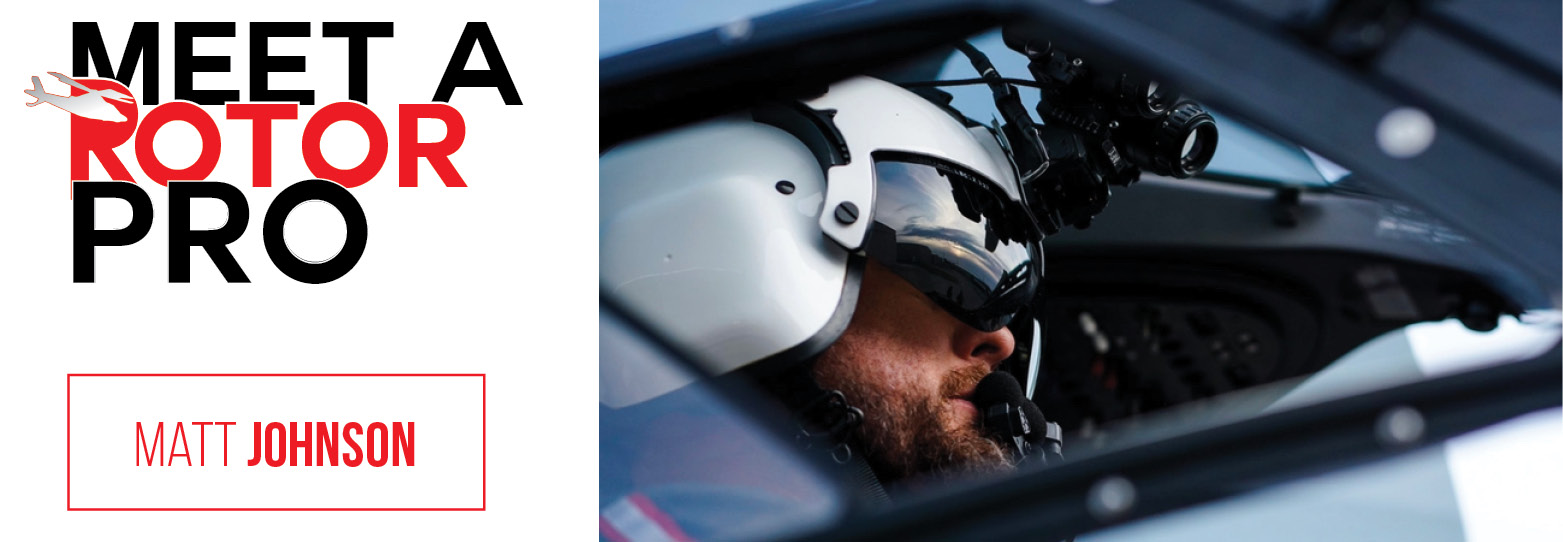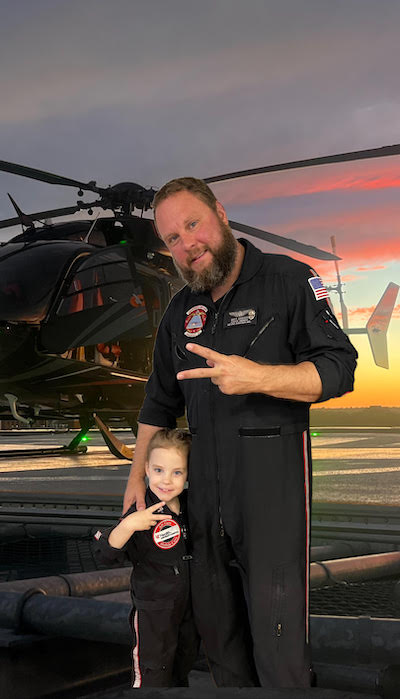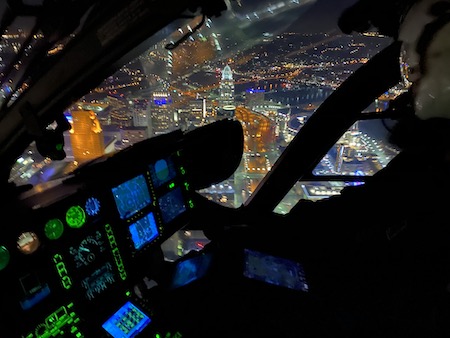|
Nov
21
2022
|
|
Posted 3 years 71 days ago ago by Admin
|
|

RPMN: What is your current position?
I am a single-pilot IFR HAA Line Pilot, Part 135 check airman, instructor, and FOQA gatekeeper for Metro Aviation, and a designated pilot examiner (DPE) for the FAA. I also remain active as a sworn law enforcement (LE) officer flying on a part-time basis for a sheriff's office.
RPMN: Tell me about your first flight or experience with helicopters.
Like many, I became fascinated with helicopters at a young age after a short tour ride on a family vacation. It was undoubtedly one of those "I've got to do this someday" moments.
RPMN: How did you get your start in helicopters?
I started flight training in airplanes, but I don’t like to admit it. (I’m being facetious.) I earned my Private ASEL. Although I haven't flown an airplane in many years, I am glad that I started with this path; it allowed me to gain a lot of initial aeronautical experience. So, when I began in helicopters, I was able to focus primarily on helicopter flying fundamentals and build that skill set. Then, I went on to do all my certificates and ratings from Private through ATP, CFI, and CFI-I over three to four years.
RPMN: When and how did you choose to fly helicopters?
It was all my choice for sure. I had a long successful law enforcement career and began flying a little more than halfway through that career with the mindset of a second career in aviation after retiring from public service, but, I got impatient. I had the aviation bug and started flying more and getting more ratings, and then got an opportunity to begin flying part-time for a local sheriff's office. I built a lot of experience and decided to retire from LE early and began flying full-time. I flew law enforcement, news, Instructing, and agricultural. I've been flying HAA for the past 12 years and I’ve been a DPE for the past 10 years.
RPMN: If you were not in the helicopter industry, what else would you see yourself doing?
I still think I would be in some aspect of the aviation realm if I were not actively flying. I have a strong passion for education and would likely be in an academic role at the college level. I also have a strong passion for weather and would find a way to include that in my career.

RPMN: What do you enjoy doing on your days off?
Well, they say don't take your work home, but aviation is more of a passion for me and not just a career and it surely isn't just a "job." I spend a lot of my time "studying my trade," and I read a lot and include my family in many aviation-related activities. I have a young daughter that is the absolute apple of my eye. But, hey! Who else has a four-year-old that knows the three stages of a thunderstorm?
RPMN: What is your greatest career accomplishment to date?
That is a tough one for me to answer. I have been fortunate and blessed to be involved in developing and implementing several projects that have ended up benefiting hundreds of pilots, which is very fulfilling. I think if I had to pick one thing, it would be my DPE designation. Although it certainly can be a difficult position at times, it is gratifying to meet career-focused pilots who put everything into it. I have issued private-pilot certificates to those who go on to obtain all of their certificates and ratings and then become a colleague; that is really cool and makes me feel old at the same time!
RPMN: Have you ever had an "Oh, crap" moment in helicopters?
I've had a few things over the years, an inadvertent encounter with freezing rain and an engine failure at a low altitude. Both ended with successful outcomes with no one hurt and no bent metal, so I call that a win.
RPMN: If you could give only one piece of advice to a new helicopter pilot, what would it be?
Be a professional on day one! I habitually ask pilots of various experience levels, "What makes you a professional pilot?" I hear lots of responses, some of which are mind-numbing. Being a professional pilot doesn't happen with the stroke of a pen on a newly issued commercial pilot certificate or when you reach a magic number of flight hours. From my perspective, I identify the consummate professional pilot as those with undeniable characteristics. They are those that strive for excellence, never stop learning, strive for competence, are mentors—and and have mentors—they are humble and are prepared. I work hard to be a professional pilot and to practice what I preach, I am nearly 25 years into this, and I am thirsty for knowledge now more than ever! I owe it to those I mentor and, more importantly, to my family and the families of the flight crew members I transport to be the best I can be.

RPMN: In your view, what is the greatest challenge for the helicopter industry at this moment in time?
The biggest challenge currently is an overall lack of qualified pilots available. I have some heartburn over some of the "qualifications" required for some positions as they are dictated and driven by insurance companies and other organizations that want quantity over quality. This makes it challenging for both employers and career-seeking pilots. There need to be better pathways more available to aspiring career-seeking pilots. I think our side could learn a few more things from the Part 121 arena.
READ MORE ROTOR PRO SEP/OCT ISSUE
READ MORE ROTOR PRO: https://justhelicopters.com/Magazine
WATCH ROTOR PRO YOUTUBE CHANNEL: https://buff.ly/3Md0T3y
You can also find us on
Instagram - https://www.instagram.com/rotorpro1
Facebook - https://www.facebook.com/rotorpro1
Twitter - https://twitter.com/justhelicopters
LinkedIn - https://www.linkedin.com/company/rotorpro1